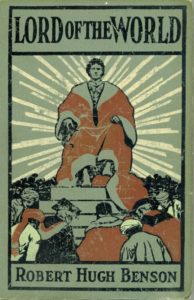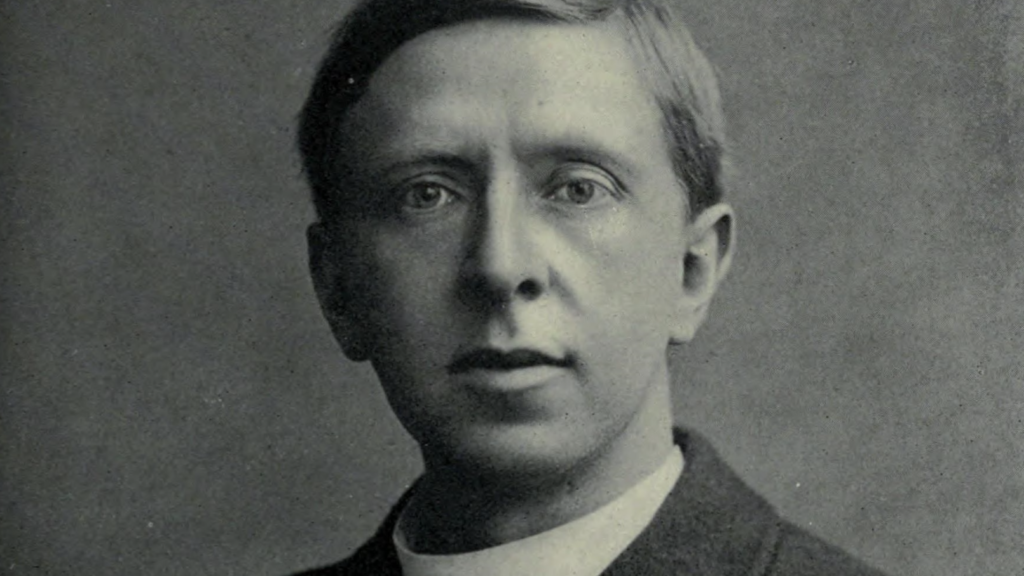What better way to get 2023 underway than to speculate if the world is going to be ending soon?
I am not inclined to read tea leaves, find hidden codes within Sacred Scripture, or play the horses based on the alignment of the planets. But things are certainly progressing, only in the world we find ourselves in today, the very word “progressive” is a pejorative.
Think of this as a book report 116 years late, since it was 1907 when Msgr. Robert Hugh Benson wrote his masterpiece dystopian novel “Lord of the World.” The book was about a lot of things — a de-Christianized culture, a state with growing power over all other social constructs, a society solely anchored on materialism. Sound familiar?
Added to the prescience of the novel is the fact it was not only written by a Catholic priest in 1907, but a Catholic priest who was once a clergyman in good standing in the Anglican Church. Even more, his father had been the archbishop of Canterbury. Just imagine the tempest that caused in many an English teapot.

This novel, with the main theme of End Times and the Antichrist’s role in them, was written chronologically closer to the French Revolution than to the present day. We may view the world of the early 20th century as less kinetic and more conservative than our current situation, but Msgr. saw something else — and it was not good. When first published, “Lord of the World” was a work of science fiction, even fantasy. Today, the book reads more like Nostradamus.
I have no idea how “Lord of the World” was received in America in 1907. It was such a different place than it is now. For one thing, America at the dawn of the 20th century was still a very agrarian culture, with more than 40% of its population engaged in farming. Today that number is less than 1%. Today, we complain when the metal flying machines Benson only dreamed of fail to get us across a continent in less than five hours.
Life was certainly simpler and more streamlined. It would be safe to assume that many Catholics in America at this time saw the Catholic universe as something still in ascendance. When “Lord of the World” was written, we were still decades away from industrialized-size statist tyrannies like communism and national socialism and all the misery and destruction those twin terrors wrought.
Life was good, so what did Msgr. Benson see that no one else was seeing?
He was obviously a student of history, and with the French Revolution, in all its secular glory, still, historically speaking, just a blink of an eye away from his own time, Msgr. Benson saw the slow and steady march of “progress.”
He was not alone. The same year his novel was published, Pope Pius X was doing a little publishing himself: “Pascendi Dominici Gregis” (“Feeding the Lord’s Flock”), his encyclical addressing the coming threat of what he termed “modernism.”
Msgr. Benson speculated on what a future might look like, but Pope Pius was more confident where we might be heading. “But it is not enough for the Modernist school that the State should be separated from the Church. For as faith is to be subordinated to science, as far as phenomenal elements are concerned, so too in temporal matters the Church must be subject to the State. They do not say this openly as yet — but they will say it. …”
Those words resonate on almost every page of Msgr. Benson’s novel. The progressive override he and Pope Pius foresaw continues to march our way. Gender is redefined, marriage is moving toward the indecipherable, and the line of demarcation between human beings and the artificial life they create is getting thinner by the minute.
In a chilling segment at the beginning of “Lord of the World” that ignites the plot, one of Benson’s fantastical flying machines crashes. The survivors are met quickly by a government-sanctioned response team, which goes about euthanizing them all. The government does not view this action as evil, but rather as compassionate, a logical and reasonable response to end what it views as needless suffering.
Just a few weeks ago, there was a news story describing how a Canadian military veteran, paralyzed in service to her country, petitioned her government for assistance in constructing a wheelchair ramp for her home to make her life a little more manageable. The Canadian government’s response was to deny her request, but to offer her something else instead: government-sanctioned suicide.
Is the end near? It is near for all of us one way or another. Whether it is today, tomorrow, or centuries from now, by bus crash, cancer, old age, or God pulling the universal plug on us, the only constant is the truth Msgr. Benson and Pope Pius X held fast to. They mined great comfort from that, and so can we.

